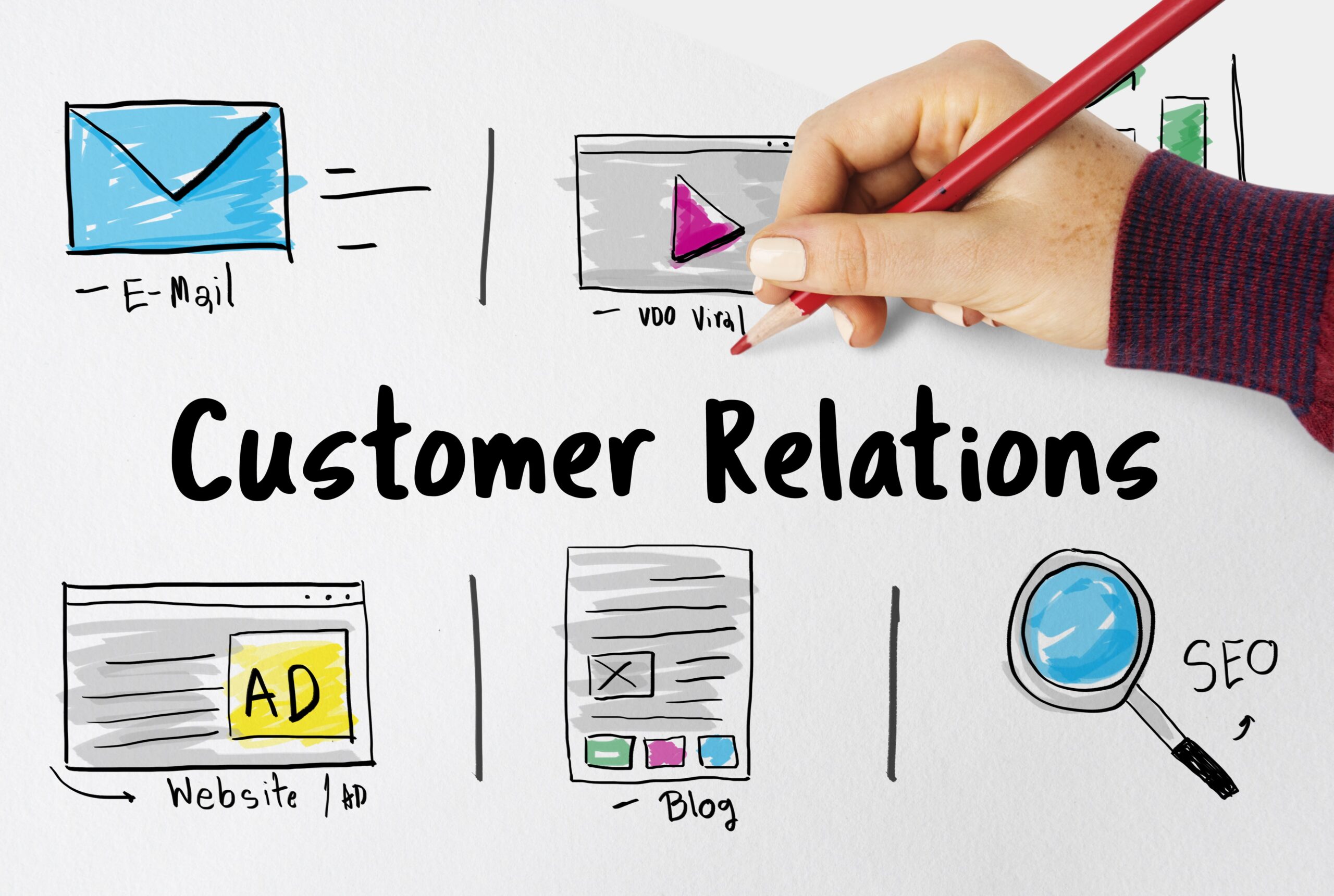Political Email Marketing: Strategies for Success
In this digital epoch, political email advertising is a key element for politicians and campaigners to connect with their desired demographic. Given the power of direct contact with voters, it is unsurprising that political campaigns are investing heavily in email marketing.
Throughout this blog post, we will delve into the benefits of political email marketing such as increased reach, cost-effectiveness, and targeted audience engagement. We’ll also explore various strategies like personalization, segmentation, and automation that can help you create successful email campaigns.
Moreover, we’ll discuss best practices for timing and frequency of emails, crafting compelling subject lines and content along with testing and optimization techniques. Lastly but importantly , we will cover legal considerations including CAN-SPAM compliance, GDPR regulations as well as local laws which must be adhered to when conducting a political email marketing campaign.
Table of Contents:
- Benefits of Political Email Marketing
- Strategies for Political Email Marketing
- Best Practices for Political Email Marketing
- Legal Considerations for Political Email Marketing
- Conclusion

Benefits of Political Email Marketing
Email marketing is an invaluable tool for political campaigns. Email marketing provides an advantageous way to get your message across, due to its broad reach, affordability and ability to target specific demographics.
Increased Reach:
Email marketing allows you to send messages directly into the inboxes of potential voters. By delivering messages to the inboxes of voters, email marketing offers a chance for those not exposed to your message on other platforms to still have access and be more likely to act upon it. Additionally, emails can easily be shared with friends and family members who may not have seen the original post – expanding your reach even further.
Cost-Effective:
Unlike traditional advertising methods such as television ads or direct mailers which require large budgets, email marketing is extremely cost-effective. You only pay for the time spent creating content and sending emails – no additional costs required. This makes it ideal for smaller campaigns that need to maximize their budget without sacrificing quality results.
Targeted Audience:
Email marketing also allows you to target specific audiences based on their interests or demographics. By utilizing demographic or interest-based criteria, you can create a list of subscribers who may be more likely to support your cause. By targeting these individuals specifically with relevant content tailored just for them, you increase the chances of converting them into supporters of your cause.
Overall, email marketing offers many advantages when used strategically by political campaigns looking to get their message out effectively while staying within budget constraints. It provides increased reach through direct delivery into inboxes; cost savings due to minimal upfront expenses; and targeted audience segmentation so that messages resonate with those most likely inclined towards supporting the cause being promoted.
The benefits of political email marketing are undeniable, as it can increase reach and be cost-effective for campaigns. By utilizing strategies such as personalization, segmentation, and automation to create targeted emails, campaigns will be able to maximize their success with this powerful tool.

Strategies for Political Email Marketing
Political email marketing is a powerful tool for connecting with potential voters and supporters. When done appropriately, political email marketing can be a great means of interacting with desired constituents and building rapport. To ensure that your political emails are successful, there are three key strategies you should consider: personalization, segmentation, and automation.
Personalization involves using data-driven insights to tailor messages specifically to each recipient’s needs and interests. This could include using the recipient’s name in the subject line or body of the message or customizing content based on their location or other demographic information. Personalized emails have been shown to improve engagement rates significantly compared to generic messages sent out en masse.
Segmenting your list is a must for political email campaigns, allowing you to tailor messages that are more likely to hit the mark with different types of recipients. From volunteers to donors and undecided voters alike, segmentation helps ensure everyone receives content relevant to them rather than generic “one size fits all” messaging. Keywords such as “tailor”, “hit the mark” and “relevant” will help you stand out from the crowd in this competitive arena.
Having a good understanding of the strategies for political email marketing is essential to creating effective campaigns. Given the importance of political email marketing strategies, let us now examine some key tactics to ensure successful campaigns.

Best Practices for Political Email Marketing
Timing and Frequency:
When it comes to political email marketing, timing is everything. For optimal engagement, emails should be sent during peak hours of the day and avoided on days with low engagement rates. Generally speaking, this means sending emails during peak hours of the day (e.g., 8am-10am) and avoiding days with low engagement rates (e.g., weekends). Additionally, you should consider the frequency of your campaigns; too many emails can lead to unsubscribes or worse yet, spam complaints from recipients who feel overwhelmed by your messages. A good rule of thumb is no more than one email per week for a given campaign unless you’re running a special promotion or time-sensitive offer.
Subject Lines and Content:
Your subject lines should be short but informative enough so that recipients know what they’re opening before they click through. Try using action words like “Act Now.” or “Don’t Miss Out.” in order to increase open rates as well as curiosity about what’s inside the message itself. As far as content goes, keep it relevant and concise; include only necessary information such as links, images, videos etc., that will help get your point across without overwhelming readers with too much text or irrelevant details which could cause them to lose interest quickly.
Testing different elements of an email campaign can help you optimize its performance over time – this includes testing subject lines for effectiveness against various audiences, experimenting with layout/designs in order to find out which ones perform best on different devices and browsers, etc. Additionally, tracking metrics such as open rate and click-through rate will give insight into how successful each campaign has been thus far, allowing marketers to make adjustments accordingly if needed down the line in order to improve results even further going forward into future campaigns.
This article provides guidance on how to make sure your political email marketing efforts are successful by utilizing the best strategies. Now let’s take a look at some of the legal considerations for political email marketing.

Legal Considerations for Political Email Marketing
When engaging in political email marketing activities, it is important to keep legal considerations top of mind. Neglecting to abide by the relevant laws and regulations can result in severe punishments or other repercussions.
CAN-SPAM Compliance:
The CAN-SPAM Act of 2003 sets forth rules for commercial emails sent from the United States, including those related to politics. The CAN-SPAM Act necessitates that all emails must feature an opt-out option, a legitimate physical address of the sender, and unambiguous disclosure regarding the message’s contents. It also prohibits false or misleading subject lines and deceptive content.
GDPR Compliance:
If you are sending political emails within Europe (or targeting European audiences), you must be compliant with General Data Protection Regulation (GDPR). Organizations must acquire explicit authorization from people prior to collecting their individual data or utilizing it for advertising objectives. Organizations mGeneral Data Protection Regulation (ust also afford users the right to access their personal data and permit them to remove it from the organization’s possession whenever desired.
Depending on your business location or the people you are targeting with political emails, extra local rules may be applicable. For example, some states have laws regarding how political campaigns can use donor information collected through email campaigns such as prohibiting its sale or requiring certain disclosures about its usage in fundraising appeals sent via email. It is important to research any applicable local laws prior to launching your campaign so that you remain compliant throughout its duration.
Conclusion
By leveraging the right tactics, political email marketing can be an effective way for politicians and lobbyists to engage their intended audiences. It is important to understand the legal considerations of this type of marketing, as well as the strategies that should be employed in order to ensure success. By utilizing best practices such as segmentation, personalization, and testing campaigns before sending them out widely, political entities can maximize their return on investment from political email marketing initiatives.
Take your political email marketing to the next level with DirectIQ. Our powerful and intuitive platform makes it easy for you to create, send, and track campaigns that drive engagement and get results.












